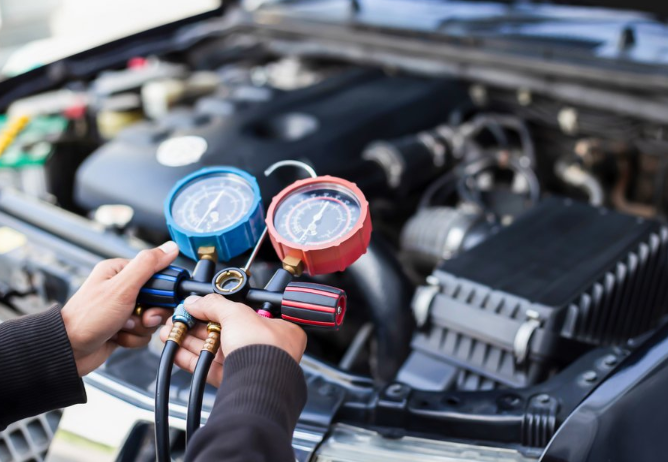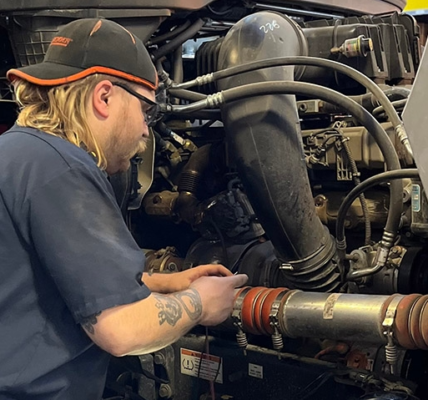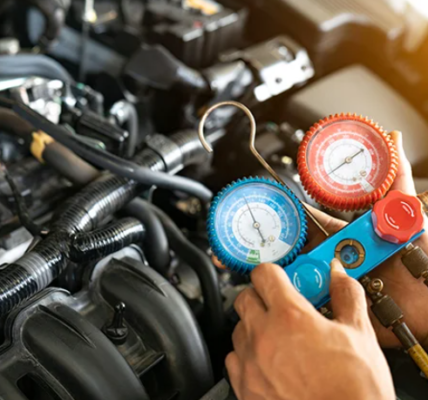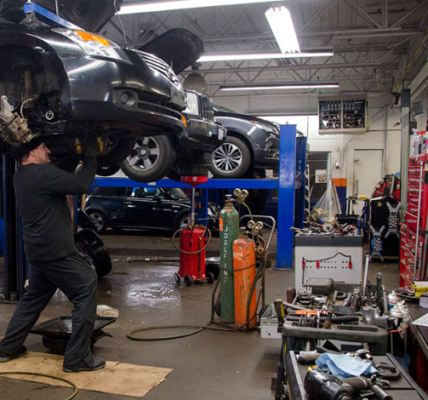AC Auto Mechanic Services: What to Expect and How to Choose the Right Shop
When your car’s air conditioning system starts acting up, it’s not just a comfort issue—it can be a safety concern too. Driving in sweltering heat without proper cooling can lead to distracted driving and general discomfort. But finding reliable auto AC mechanic services can feel overwhelming if you don’t know where to start. Let’s dive into what these services include, common AC problems, and tips for picking the right mechanic.
What Do Auto AC Mechanic Services Include?
Auto AC services cover everything from routine maintenance to complex repairs. Here’s what you can expect when you visit a shop:
- AC System Inspection:
- The mechanic will check the entire AC system, including the compressor, condenser, evaporator, and refrigerant levels. They’ll look for leaks, damage, or any other potential issues.
- Refrigerant Recharge:
- If your system isn’t cooling properly, it might need a refrigerant top-up. Shops use specialized tools to measure and refill refrigerant to the correct level.
- Leak Detection and Repair:
- Refrigerant leaks are a common problem. Mechanics use dye tests or electronic leak detectors to pinpoint where the refrigerant is escaping and repair the leak.
- Compressor and Component Repairs:
- If your AC isn’t working at all, it could be a faulty compressor or a damaged component. Mechanics can replace or rebuild these parts to get your system back in working order.
- Filter Replacement:
- A clogged cabin air filter can reduce airflow and make your AC feel weak. Replacing the filter is a quick and easy fix.
- Electrical System Diagnosis:
- Sometimes, the problem isn’t mechanical but electrical. Mechanics will check fuses, relays, and wiring to ensure the system is getting power.
Common Car AC Problems and Their Causes
If your AC isn’t working as it should, it’s usually one of these common issues:
- Warm Air Blowing: Low refrigerant levels, a faulty compressor, or a blocked condenser could be to blame.
- Weak Airflow: A clogged cabin air filter or a blower motor issue might be causing poor airflow.
- Unpleasant Odors: Mold or bacteria buildup in the evaporator can cause musty smells.
- Loud Noises: Grinding or squealing sounds often indicate a failing compressor or loose belts.
- Leaks Inside the Car: A clogged evaporator drain line can cause water to back up and leak into the cabin.
When to See an AC Mechanic
It’s tempting to put off AC repairs, but addressing problems early can save you time and money. Schedule an appointment if you notice:
- The AC isn’t cooling as effectively as it used to.
- You hear unusual noises when the AC is running.
- There’s a refrigerant smell or visible leaks under the car.
- Your car windows fog up excessively when the AC is on.
DIY Fixes vs. Professional Services
While some AC issues can be handled at home, others require professional expertise. Here’s a quick breakdown:
- DIY-Friendly: Replacing a cabin air filter or cleaning the condenser with a hose is easy for most car owners.
- Leave to the Pros: Diagnosing refrigerant leaks, recharging refrigerant, or replacing a compressor should be done by a trained mechanic. Handling refrigerant without proper tools or knowledge can be dangerous and may damage the system further.
How to Choose the Right AC Mechanic
Not all mechanics are created equal, and finding a trustworthy shop is key. Here’s what to look for:
- Experience and Certification:
- Look for mechanics certified by ASE (Automotive Service Excellence) or similar organizations. This ensures they’re trained to handle AC systems properly.
- Specialized Equipment:
- AC repairs require specialized tools, like refrigerant recovery machines and leak detectors. Make sure the shop is equipped to handle the job.
- Transparent Pricing:
- A good mechanic will explain what’s wrong, provide a detailed estimate, and won’t push unnecessary repairs. Avoid shops that seem vague or overly aggressive.
- Customer Reviews:
- Check online reviews or ask friends and family for recommendations. A shop with a solid reputation is always a safe bet.
- Warranty on Repairs:
- Ask if the shop offers a warranty on parts and labor. This gives you peace of mind if something goes wrong after the repair.
How Much Do AC Repairs Cost?
The cost of AC repairs varies depending on the issue and your car’s make and model. Here’s a rough breakdown:
- Refrigerant Recharge: $100–$250
- Leak Detection and Repair: $150–$500 (depending on the severity)
- Compressor Replacement: $500–$1,500
- Filter Replacement: $20–$100
- Blower Motor Repair: $300–$600
Remember, these are just averages, and prices can vary depending on your location and the shop’s rates.
Tips for Maintaining Your Car’s AC System
A little maintenance goes a long way in keeping your AC running smoothly:
- Run the AC Regularly: Even in the winter, running the AC for a few minutes helps keep the compressor and seals lubricated.
- Replace the Cabin Air Filter: Check and replace the filter every 12,000–15,000 miles or as recommended in your owner’s manual.
- Keep the Condenser Clean: Spray it down with water occasionally to remove dirt and debris.
- Check for Leaks: Inspect AC lines for oily spots that could indicate a refrigerant leak.
The Bottom Line
Your car’s air conditioning system is essential for comfort and safety, especially during those scorching summer months. Whether you’re dealing with a minor issue like a clogged filter or a major repair like a compressor replacement, staying proactive can save you from bigger problems (and costs) later.
Finding a reliable AC auto mechanic might take a little research, but once you do, it’s a game-changer. They’ll help keep you cool and comfortable, no matter how hot it gets outside!








